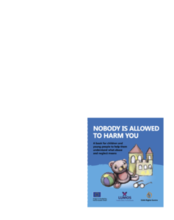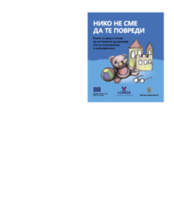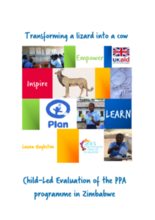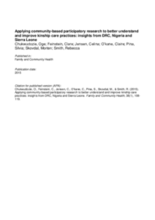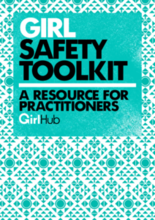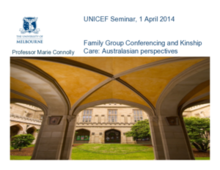Displaying 221 - 230 of 377
This book is designed to help children and young people understand what abuse and neglect are, and who to ask for help if it happens to them or to someone they know. The book is written in the Serbian context and is available in English and Serbian.
This book is designed to help children and young people understand what abuse and neglect are, and who to ask for help if it happens to them or to someone they know. The book is written in the Serbian context and is available in English and Serbian.
In 2011 Plan International UK secured a Programme Partnership Agreement (PPA) with the Department for International Development (DFID). This strategic funding has been used to develop the Building Skills for Life Programme.
This editorial piece from the Child & Youth Services journal makes observations about the children who live away from home and their vulnerability to violence, the shift in the use of violence as a threat to democracy to its use as a defense of democracy, and the exclusion of young people from globalization.
This study examines the influence of a subset of adverse childhood experiences (ACEs), placement instability, and childhood disability in uniquely predicting mental health outcomes among racially diverse foster care alumni from a private foster care agency in the US.
This paper reflects on the experiences of Save the Children in implementing a multi-country community-based participatory research (CBPR) program to increase understanding of kinship care in DRC, Nigeria and Sierra Leone.
This video features a segment of a talk on the effects of care environments on children, hosted by the Christian Alliance for Orphans. The key speakers featured include Dr. Kathryn Whetten & Dr. Charles Nelson, who discuss the Positive Outcomes for Orphans study (POFO) and the Bucharest Early Intervention Project (BEIP), respectively.
This article discusses the challenges in protecting Guatemalan children and their families from involuntary separation and presents the process, results and implications of a pilot training in which Guatemalan participants from government and civil society explored the efficacy and feasibility of the FGC model in their country.
This tooklit provides a comprehensive guide to designing safe programmes specifically for adolescent girls.
This webinar presentation by Professor Marie Connolly of the University of Melbourne introduces the history and background of Family Group Conference (FGC) in New Zealand and Australia and discusses the influence of FGC on the development of formal or statutory kinship care in the region.

